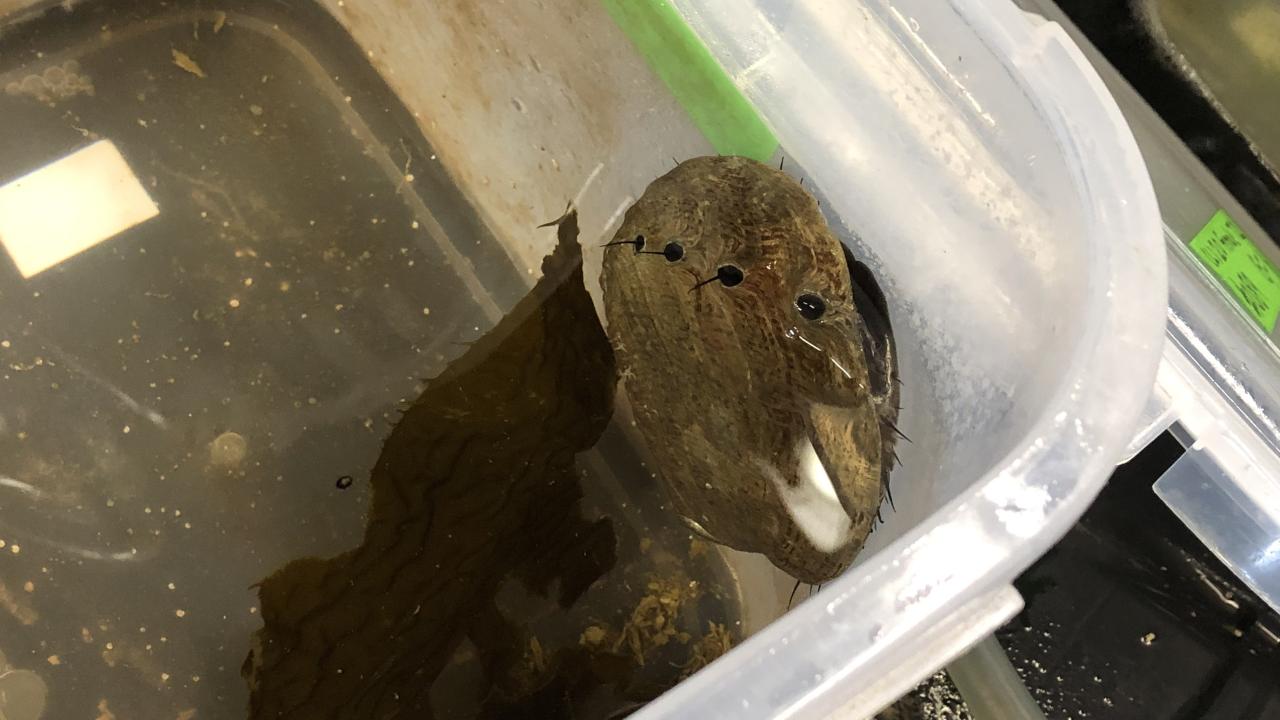
A Summer in Sustainable Aquaculture
An SRJC-BML Internship Story
Jackson Hargreaves is a 23-year-old biology student at SRJC, aspiring to transfer to UC Davis to pursue a bachelor’s degree in environmental toxicology. As a student, Jackson is passionate about self-sustaining systems and applied sciences.

This summer, I have been participating in an internship at the Bodega Marine Lab. Under the guidance of Dr. Sara Boles, I have been learning the ins and outs of sustainable aquaculture, particularly as it pertains to red abalone and chiton. Overfishing, climate change, and disease have led to a decline in abalone populations along the West Coast. By developing sustainable aquaculture methods for red abalone, we aim to mitigate the effects of overfishing on the wild abalone population. The sustainable practices we develop here could also inform cultivation methods for other, more endangered abalone species, such as black abalone.
During this summer, I witnessed the implementation of a new culture of live kelp for the red abalone. The shift from dried food to live food grown at the lab was a significant change for the abalone. The kelp helps to fix and remove nutrient pollution from the water, which is then recirculated throughout the aquaculture extension lab. Dr. Boles is already looking to improve the kelp culture by reducing sun bleaching and finding methods to secure the kelp holdfasts to the bottom of the tank, allowing for more complete submersion of the kelp until it needs to be trimmed for feeding.
I thoroughly enjoyed working with the abalone throughout the summer, and I even had the opportunity to participate in some of Dr. Sara Boles’ work taking ultrasound images of abalone and chiton gonads. This use of ultrasound allows for non-invasive determination of characteristics like sex and readiness to spawn—previously, such determinations required invasive or even lethal methods.
About the Program:
The SRJC-BML Internship Program provides summer research opportunities for Santa Rosa Junior College students at the Bodega Marine Laboratory.
